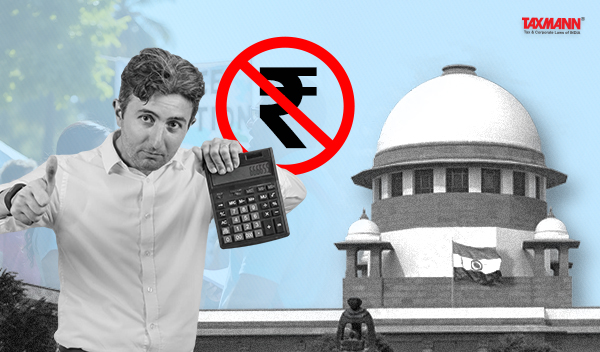No Tax on Surplus of Company Formed by Members of Industrial Association to Reduce Pollution | HC
- News|Blog|Income Tax|
- 3 Min Read
- By Taxmann
- |
- Last Updated on 29 November, 2024

Case Details: Commissioner of Income-tax vs. Vapi Waste and Effluent Management Co Ltd. - [2024] 168 taxmann.com 518 (Gujarat)
Judiciary and Counsel Details
- Bhargav D. Karia & D.N. Ray, JJ.
- Mrs Kalpana K. Raval, Adv. & Karan Sanghani, Sr. Standing Counsel for the Appellant.
- B.S. Soparkar, Adv. for the Respondent.
Facts of the Case
The assessee was a Public Limited Company incorporated under the provisions of the Companies Act, 1956. The company was formed by the members of the Vapi Industrial Association, which took over the Common Effluent Treatment Plant (CEFT) from GIDC for disposal of the Solid Hazardous Waste Disposal under the Common Solid Waste Project (CSWP).
The assessee filed its return of income, claiming the income to be exempt from tax on the grounds of mutuality. However, the Assessing Officer (AO) rejected the assessee’s claim and made additions to the assessee’s income.
The CIT(A) upheld the order of AO. Later, ITAT reversed the order of AO and held that the income of assessee was exempt from tax. The matter then reached the Gujarat High Court.
High Court Held
The High Court held that the assessee-company received contributions from its members for the services to be provided for the treatment of the effluent. The company was formed pursuant to the directions/suggestions made by the Court to reduce pollution, which was in the public interest. Therefore, the form in which the company was incorporated was irrelevant.
In such circumstances, the act of members not becoming voluntary, the composition of the Board of Directors consisting of outsiders than the members being the government nominees, members having no right over the property of the company, object of a company is for profit-making and by entering into the partnership with outsiders for sharing profit which is only in the objects of the company but not the fact as found by the authorities, etc., would fall outside the scope of destroying the basic ingredients of the principle of mutuality.
The objects of the company also made it clear that the surplus, if any, would not be paid to its members, and in the case of dissolution of the company, only Rs. 100 would be paid to its members. Thus, the findings arrived at by the CIT(A) were contrary to the settled legal position. Therefore, the assessee was entitled to claim the income to be exempt from tax on the ground of mutuality.
List of Cases Reviewed
-
Sports Club of Gujarat Limited v. CIT (1987) 171 ITR 504
-
Secunderabad Club v. Commissioner of Income Tax (2023) 457 ITR 263 (SC) (Para 27) Followed.
-
Order of Tribunal in ITA no. 689/2012 for assessment year 2006-07
-
ITA no. 690/2012 for assessment year 2006-07, ITA no. 691/2012 for assessment year 2008-09
-
ITA no. 692/2012 for assessment year 2008-09
-
ITA no. 216/2022 for assessment year 2014-15
-
ITA no. 500/2023 for assessment year 2019-20
-
ITA no. 670/2024 for assessment year 2017-18
-
ITA no. 671/2024 for assessment year 2018-19 (Para 31) Affirmed.
List of Cases Referred to
- Sports Club of Gujarat Ltd. v. CIT 1988] 37 Taxman 38/171 ITR 504 (Gujarat) (para 8)
- Secundrabad Club etc. v. CIT [2023] 153 taxmann.com 441/295 Taxman 123/457 ITR 263 (SC) (para 16)
- CIT v. Bankipur Club Limited (1997) 5 SCC 394 (para 17)
- Chelmsford Club v. CIT (2000) 3 SCC 214 (para 18)
- CIT v. Common Effluent Treatment Plant (Thane Belapur) Association [2010] 192 Taxman 238/328 ITR 362 (Bombay) (para 19)
- ITO v. Venkaatesh Premises Cooperative Society Limited (2018) 15 SCC 37 (para 20)
- CIT v. Jagdish Prosad Goenka [1992] 64 Taxman 580/196 ITR 15 (Calcutta) (para 21)
- Decision of Banglore Club v. CIT (2013) 5 SCC 509 (para 21)
Disclaimer: The content/information published on the website is only for general information of the user and shall not be construed as legal advice. While the Taxmann has exercised reasonable efforts to ensure the veracity of information/content published, Taxmann shall be under no liability in any manner whatsoever for incorrect information, if any.



 CA | CS | CMA
CA | CS | CMA
